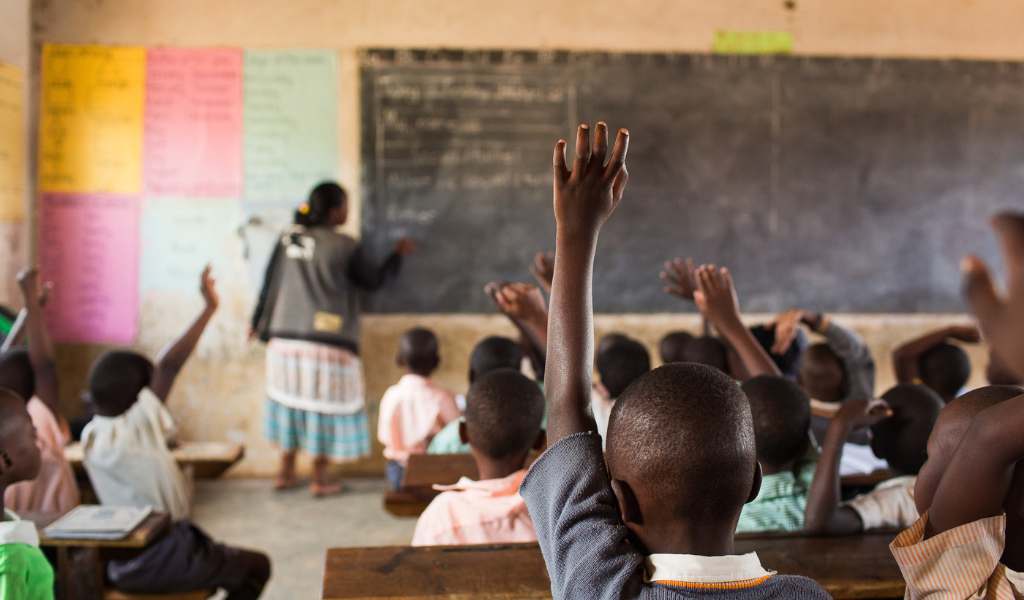A new research project seeking to understand how to best support teachers working in crisis-affected areas of the Democratic Republic of Congo (DRC), and refugee-receiving areas in Uganda, is being undertaken by a new partnership led by IDS.

Conflict levels have almost doubled across the world since 2020 and by the end of 2024, an estimated 123.2 million people worldwide were forcibly displaced. This creates incredibly challenging contexts for teachers and an urgent need to understand locally grounded drivers of teacher retention and wellbeing.
Urgent need to understand teacher retention and wellbeing
Gauthier Marchais, Research Fellow, Institute of Development Studies and Principle Investigator for this new project, said: “We are excited to start this new project, which builds on the work we carried out during the BRiCE project.
“The sharp rise in violent conflict and displacement around the world is having a devastating impact on educators, making research into how to support them urgent”.
Project partners will analyse the effects of three crucial factors on teacher wellbeing and retention: (1) informal teacher and community strategies; (2) school leadership and sub-national education governance mechanisms; and (3) peer-based professional support and teacher professional development.
The new project builds on the work of BRiCE – research understanding the role of education systems in providing a safe learning environment in conflict-affected and fragile regions of the Democratic Republic of the Congo (DRC) and Niger that concluded in 2022.
Consortium of experience and expertise
Working in a way that centres the perspectives of teachers, including marginalised educators, and harnesses the different expertise of each partner in a way that builds collective and capacity, the project aims to understand locally grounded drivers of teacher retention and wellbeing that can be sustainably supported by educational policy and programmes.
The partners working on the new project include Institut Supérieur Pédagogique de Bukavu (ISP Bukavu), a teacher training institute and research university in the DRC; the Luigi Giussani Foundation (LGF), an education practitioner and research organisation in Uganda; and the Institute of Development Studies (IDS), a leader in policy-relevant academic research. Policy partners ‘Permanent Secretariat for Support and Coordination of the Education Sector’ (SPACE), Oxfam Denmark and Oxfam Uganda will ensure that the project directly informs national education policy in the DRC and Uganda, and at a regional level.
The project, called ‘The drivers of teacher wellbeing and retention in contexts of protracted violence and displacement’, is funded by the European Commission Directorate General for International Partnerships (DG INTPA). It is part of the Regional Teacher’s Initiative in Africa (RTIA).
Researcher recruitment
As part of the project, IDS is looking to hire a senior researcher on education in emergencies, as a part-time consultant. The role will support the research carried out in the DRC and Uganda, the analysis and the write-up of the research. The role will start working on the project in early September 2025 and continue until the project’s end date of 14 November 2026.
Before you apply, read the Tender Dossier and Evaluation Criteria for information on the job description and application process.
Closing date: Thursday 28 August 2025 at 17:00 GMT.
The project is committed to embedding and supporting equality, diversity, and inclusion in our work and in all our activities. We welcome applications from people of all backgrounds, beliefs, identities, orientations, and abilities.
